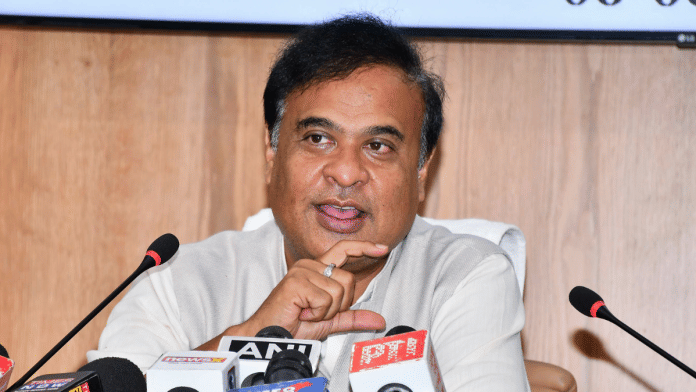The tragic incident involving the brutal rape of a minor girl in Assam, allegedly by three Muslim men fueled anti-‘Miya’ Muslim sentiment with 30 organisations demanding that the community leave Assam within seven days. As this sensitive issue was escalating and required serious attention, the Chief Minister made a statement that was highly irresponsible for someone in his position.
It’s not the first time that Himanta Biswa Sarma has addressed the ‘Miya’ Muslim community in a generalised and derogatory manner. After calling them a communal organisation in the past, he has now made another inflammatory statement, saying that he will not permit the ‘Miya’ Muslims to “take over” Assam. It is clearly politically motivated and helped shift the focus away from discussing policies and administrative measures to provide better safety for women and create societal awareness.
I could go on and on criticising and denouncing politicians, and they most definitely should be held responsible for their irresponsible speeches. However, we miss the root issue when indulging in politicisation—that ‘Miya’ Muslims are perceived as being resistant to Assamese culture and are frequently reduced to Bengali-speaking Muslims. This perception has contributed to the creation of a complex, multi-ethnic state where linguistic identity and citizenship have become significant political fault lines. Bengali-speaking Muslims, in particular, are frequently accused of being undocumented immigrants from Bangladesh, further complicating their place in society.
When members of a community are perceived as outsiders, a tragic incident like this can easily reignite unresolved tensions between groups, deepening existing fault lines.
This issue isn’t unique to Assam; it’s evident across India, where similar divisions often lead to scapegoating of certain groups. Instead of addressing the root cause, the focus shifts to punishing these groups. While India is a vast country with varying degrees of individualism and collectivism, there is a general lack of a culture that emphasises individual accountability, rights, and personal autonomy making it easier to shift blame on an entire group.
A similar event occurred in Gujarat in 2018, when demonstrations over the alleged rape of a 14-month-old girl by a man from Bihar caused migrant workers to start leaving North Gujarat. There was significant agitation as a result of the targeting of people from Uttar Pradesh and Bihar. The situation escalated to the point where the police had to arrest more than 300 individuals to restore order.
Also read: Stop seeing population control measure as anti-Muslim. They also benefit from small families
An image problem
The issue of generalisation is a deep-rooted problem in our society. When it intersects with existing fault lines, such as illegal migration, it has the potential for disaster.
Illegal immigration has been a burning issue in India, especially in the Northeastern states, where the government’s failure to provide effective solutions has led to increased ethnic-based conflicts. Assam has experienced the contentious NRC process and has a long history of ethnic tensions. For many Assamese, it might seem as though the Chief Minister is finally addressing their concerns, even if he is not being politically correct in doing so.
Sarma also laid out certain guidelines for ‘Miya’ Muslims to be accepted as indigenous Muslims in March this year. These included not practising polygamy, not marrying off minor girls, sending kids to secular schools instead of madrasas, and not having more than two children. From a neutral perspective, these guidelines seem reasonable, as they promote values that could benefit the community. Truth be told, these are values that I genuinely wish to see implemented and accepted, particularly within the Pasmanda Muslim community. Promoting these values are need of the hour to bring positive change and better integration, which are important for the community’s overall well-being and larger social harmony.
However, the Chief Minister presented these principles in such a way that members of the community as a whole are being unfairly singled out, as though they need to undergo significant transformation in order to be deemed “civilised” enough for acceptance. This generalises the entire group and ignores individual distinctions. Although I agree with Sarma’s policies—that the Muslim community should follow the same rules as everyone else, that the Uniform Civil Code should be implemented, and that secular education is preferable to traditional madrasas—his public remarks frequently fall short of thoughtful leadership and diplomacy.
Amana Begam Ansari is a columnist and TV news panelist. She runs a weekly YouTube show called ‘India This Week by Amana and Khalid’. She tweets @Amana_Ansari. Views are personal.
(Edited by Theres Sudeep)







Excuse me, are you even a woman ? Don’t you know that these miya Muslims perform love jihad and rape Assamese women ? And here you’re writing a fake article on how they aren’t a problem. They will multiply like cockroaches and convert Assam into an Islamic state like Bengal.
This is whole problem of India. Rahul Gandhi asking about everyone caste dividing Hindu. BJP targeting muslim because they don’t have any other option of caste politics. And in reference to muslim they definitely need change, every where in the world muslim are changing but in India they are becoming more conservative, this makes the general public insecure and muslim politician rather than solving these issues they are giving oil to the lamp. Recent events in bangladesh make people more insecure and illigal bangadeshi immigrants especially in northeast have created wide anger in general public
Politician need to address this issue rather than using it for vote bank